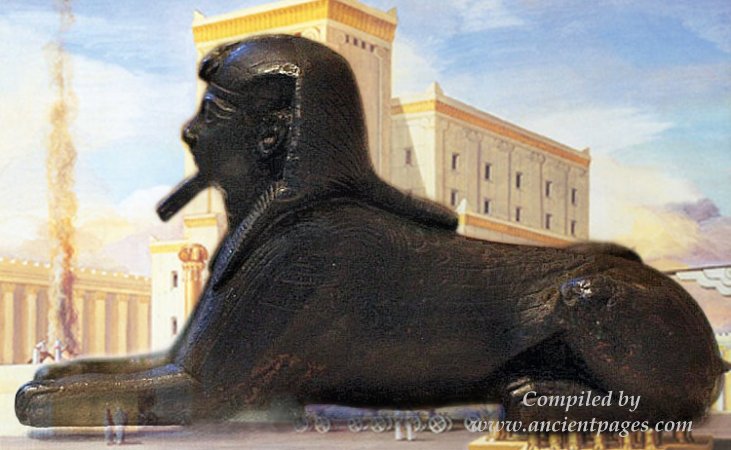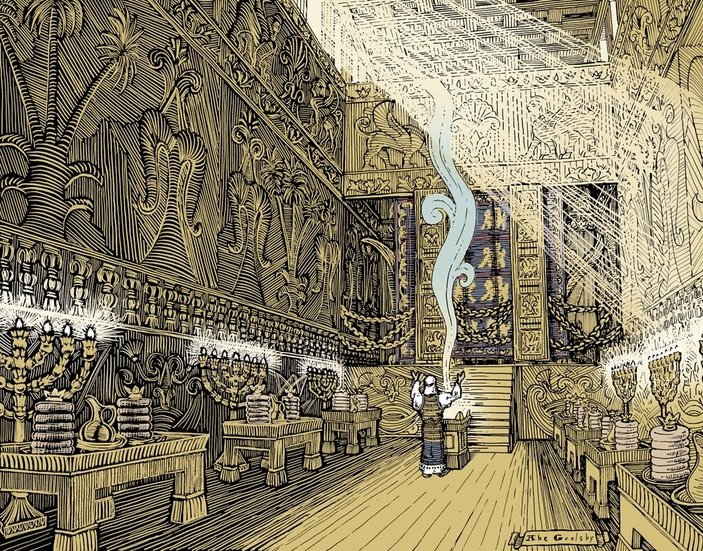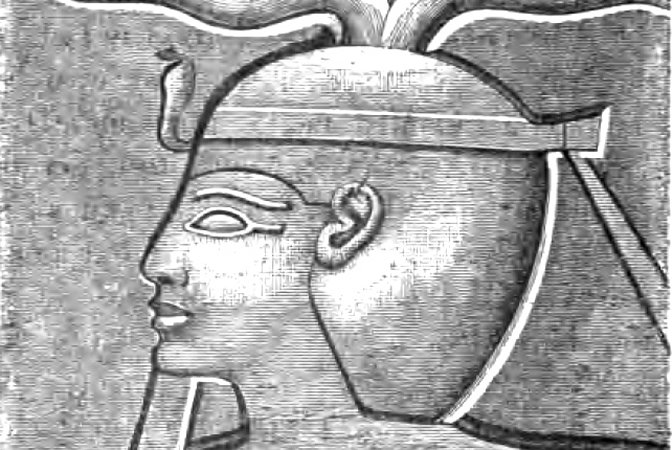Did Pharaoh Shishak Plunder King Solomon’s Temple?
Ellen Lloyd – AncientPages.com – Scholars have confirmed many Biblical events, but there are still accounts in the Holy Book that remain shrouded in mystery. One such case concerns the possible connection between Pharaoh Shishak and King Solomon's Temple.
According to the Bible, Israel was very wealthy during the reign of King Solomon. At the same time, a much weaker and poorer Egypt was still struggling in their Third Intermediate Period (1069–747 B.C.)
After the death of Pharaoh Ramesses XI (reign 1107–1078/77 B.C.), Egypt declined and lost much of its glory. Smendes I, the first King of the 21st Dynasty, ruled from Tanis. Still, he had difficulties maintaining power in Thebes, whose priests were becoming increasingly influential.
Sphinx of King Shishak. In the background artistic impression of King Solomon's Temple.
The Bible tells us that knowledge of King Solomon's wealth spread worldwide. This raises the question of whether ancient Egyptians were interested in Solomon's treasures.
It has been suggested that Pharaoh Shishak plundered King Solomon's Temple, but what evidence supports such claims? While investigating this story, we encounter obstacles and unconfirmed events.
Jeroboam, the first King of Israel, fled to Egypt after King Solomon tried to kill him following prophecies by Yahweh. Jeroboam remained in Egypt, where Shishak ruled until Solomon's death. According to Biblical scholars and Jewish experts, Israel owned thousands of tons of gold and silver. Needless to say, such treasures must have been very appealing to any Egyptian ruler, and Shishak wouldn't have second thoughts about bringing this wealth to his country, but did he have such an opportunity?
After Solomon's death, Jeroboam left Egypt, returned to Israel, and asked the new King Rehoboam to reduce taxes, but his wish was not granted. Jeroboam traveled north and rebuilt and fortified Shechem as the northern kingdom's capital.
Four years later, in support of his ally Jeroboam, Pharaoh Shishak led an army of 60,000 horsemen and 1,200 chariots to invade Judah.
Artistic impression of King Solomon's Temple and its interior. Credit: Public Domain
Pharaoh Shishak sacked Jerusalem and his successful military campaign gave him the perfect opportunity to plunder and boost Egypt's economy. Pharaoh Shishak did unite Egypt, but did he get his hands on Solomon's wealth?
Some scholars speculate that Judah was so weak at the time that it was decided to give King Solomon's riches to Shishak to save the precious Temple.
According to Paul Backholer, author of the book The Ark of the Covenant, Investigating the Ten Leading Claims: Including Pharaoh Shishak's Siege of Solomon's Temple, Ethiopia's Ark & the Garden Tomb, finding historical or archaeological evidence that Pharaoh Shishak plundered King Solomon's Temple, is a complicated issue.
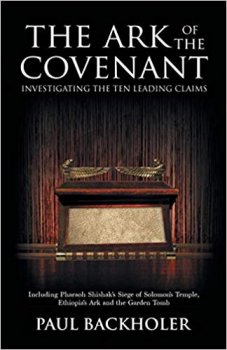 Backholer writes that "grave robbers are sometimes as infamous as the pharaohs, for they managed to search out and empty the royal tombs of their wealth. In fact, the situation was so bad that Egyptian priests eventually gathered and hid away the mummified bodies of their pharaohs in order to protect them.
Backholer writes that "grave robbers are sometimes as infamous as the pharaohs, for they managed to search out and empty the royal tombs of their wealth. In fact, the situation was so bad that Egyptian priests eventually gathered and hid away the mummified bodies of their pharaohs in order to protect them.
Pharaoh Shishak's tomb and the wealth within have never been found. No leads there then. Nevertheless in Tanis riches were uncovered second only to Tutankhamun's; yet the discovery was never made famous for this excavation took place during WWII when the world had bigger problems to think about and the finds were only published in French.
Tanis was the burial ground for the successors of the pharaoh who attacked Jerusalem and just fifty years after his death, Pharaoh Osorkon II came to power.
The Bible declares that Shishak took the wealth of Jerusalem and Egyptians were always working on projects, including burial deposits that needed gold and silver.
Therefore was any of Solomon's treasure melted down and recast to be buried in these royal tombs?
Many of the antiquities of Jerusalem were taken by Shishak and when archaeologists excavated these tombs, they identified golden treasures that the grave robbers had missed. Inside they dug up a bracelet bearing the name of Sheshonq I, the man who took Judah's wealth, and his relatives were buried with gold and silver. Sheshonq II had a golden face mask and a large silver coffin. When Solomon reigned he boasted of the abundance of silver in Jerusalem, but after his death, Egypt plundered the nation, 2 Chronicles 9:10-27."
While visiting an Egyptian museum, Backholer saw virtually unheard of artifacts in the Western world.
Bachelor explains that in the Tanis exhibit, next to Tutankhamun's display, he saw a" bracelet worn by the pharaoh who entered Jerusalem and took the wealth from Israel's first Temple! How many
Did Christians visit this museum without realizing that the man who wore this bracelet saw Solomon's Temple?
The head of Shishak. Image credit: Bible History Online
Two steps away, we found the silver coffin and the golden facemask. These discoveries are almost unknown to the public, and while experts cannot prove that these antiquities were made with Jerusalem's wealth, the link remains provocative.
When we ask what happened to the wealth of Solomon's Temple, the Bible gives us the answer. One of the culprits who stripped the Temple was Shishak, and plunder from his campaign would have been used to build his memorial in the Temple of Karnack, and some of Jerusalem's gold and silver may have been recast, and buried in Tanis."
See also: More Biblical Mysteries
So, yes, Pharaoh Shishak may have plundered King Solomon's Temple, but before making such claims, archaeologists must first offer reliable evidence the structure did exist. This may be very difficult as the Temple may have been completely destroyed.
Updated on January 26, 2023
Written by Ellen Lloyd – AncientPages.com
Copyright © AncientPages.com All rights reserved. This material may not be published, broadcast, rewritten or redistributed in whole or part without the express written permission of AncientPages.com
More From Ancient Pages
-
 Strange Case Of A Victim Who Solved Her Own Murder – Unusual Powers Of The Human Mind
Featured Stories | Feb 15, 2019
Strange Case Of A Victim Who Solved Her Own Murder – Unusual Powers Of The Human Mind
Featured Stories | Feb 15, 2019 -
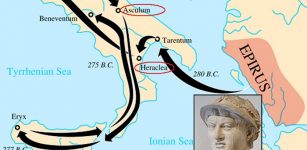 Where Does The Expression “Pyrrhic Victory” Come From?
Ancient History Facts | Apr 18, 2018
Where Does The Expression “Pyrrhic Victory” Come From?
Ancient History Facts | Apr 18, 2018 -
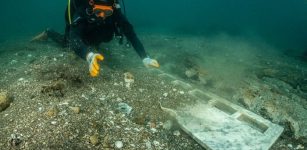 Underwater Nabataean Temple With Marble Altars Discovered In Pozzuoli
Archaeology | Apr 12, 2023
Underwater Nabataean Temple With Marble Altars Discovered In Pozzuoli
Archaeology | Apr 12, 2023 -
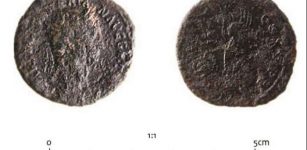 Hoard Of Roman Bronze Coins Turns Out To Be Offering For Safe Crossing
Archaeology | Jul 2, 2021
Hoard Of Roman Bronze Coins Turns Out To Be Offering For Safe Crossing
Archaeology | Jul 2, 2021 -
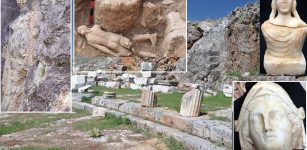 Sculptures Of Kybele, Athena, Hekate, Apollo Unearthed At Hellenistic Site Of Pisidia Antiocheia, Turkey
Archaeology | Oct 15, 2017
Sculptures Of Kybele, Athena, Hekate, Apollo Unearthed At Hellenistic Site Of Pisidia Antiocheia, Turkey
Archaeology | Oct 15, 2017 -
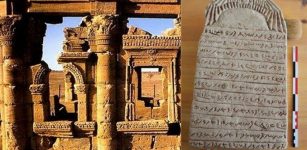 Ancient Napata And Meroe Kingdoms Reveal Secrets Of Queen Tiye And Goddess Maat
Archaeology | Mar 7, 2018
Ancient Napata And Meroe Kingdoms Reveal Secrets Of Queen Tiye And Goddess Maat
Archaeology | Mar 7, 2018 -
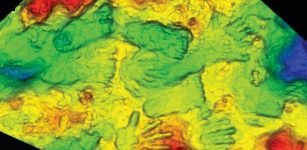 World’s Oldest Hand And Footprints Discovered On The Tibetan Plateau Are 226,000-Year-Old!
Archaeology | Sep 15, 2021
World’s Oldest Hand And Footprints Discovered On The Tibetan Plateau Are 226,000-Year-Old!
Archaeology | Sep 15, 2021 -
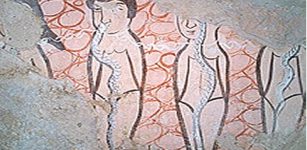 Ancient Monastery In The Middle Of ‘Syria’s Stonehenge’ – Underground Caves, Tombs, Stone Circles Older Than Pyramids
Civilizations | Nov 13, 2015
Ancient Monastery In The Middle Of ‘Syria’s Stonehenge’ – Underground Caves, Tombs, Stone Circles Older Than Pyramids
Civilizations | Nov 13, 2015 -
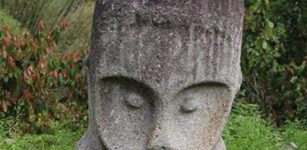 Mysterious Prehistoric Statues In Bada Valley, Indonesia Surrounded With Countless Legends
Civilizations | Jan 9, 2019
Mysterious Prehistoric Statues In Bada Valley, Indonesia Surrounded With Countless Legends
Civilizations | Jan 9, 2019 -
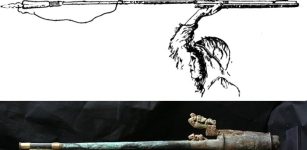 Atlatl Weapon Use By Prehistoric Females Equalized The Division Of Labor While Hunting – Study Shows
Archaeology | Aug 18, 2023
Atlatl Weapon Use By Prehistoric Females Equalized The Division Of Labor While Hunting – Study Shows
Archaeology | Aug 18, 2023 -
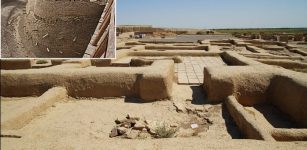 Climate Change, Not Genghis Khan Caused Demise Of Central Asia’s River Civilizations
Archaeology | Dec 17, 2020
Climate Change, Not Genghis Khan Caused Demise Of Central Asia’s River Civilizations
Archaeology | Dec 17, 2020 -
 Ancient Mysteries Of West Virginia: Did Ancient Celts Visit North America Where They Left An Ogham Inscribed Bone Needle With Christian Symbols?
Artifacts | Mar 1, 2017
Ancient Mysteries Of West Virginia: Did Ancient Celts Visit North America Where They Left An Ogham Inscribed Bone Needle With Christian Symbols?
Artifacts | Mar 1, 2017 -
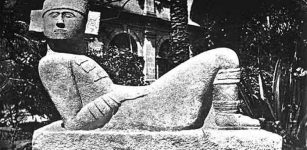 Chacmool (‘Chac-Mool’) – Intriguing Pre-Columbian Statue Found At Many Ancient Sites In Mesoamerica
Featured Stories | May 22, 2021
Chacmool (‘Chac-Mool’) – Intriguing Pre-Columbian Statue Found At Many Ancient Sites In Mesoamerica
Featured Stories | May 22, 2021 -
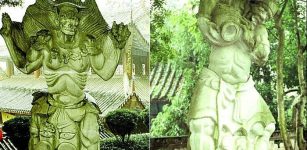 Spectacular Fengdu Ghost City Devoted To Afterlife
Chinese Mythology | Aug 22, 2016
Spectacular Fengdu Ghost City Devoted To Afterlife
Chinese Mythology | Aug 22, 2016 -
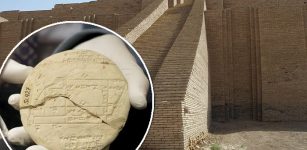 Discovered 3,700-Year-Old Clay Tablet Shows Babylonians Used Geometry Long Before Pythagoras
Archaeology | Aug 4, 2021
Discovered 3,700-Year-Old Clay Tablet Shows Babylonians Used Geometry Long Before Pythagoras
Archaeology | Aug 4, 2021 -
 Zoroaster’s Doomsday Prophecy About Comet Gochihr And Its Similarity With The Apocalypse Of John In The Book Of Revelation
Biblical Mysteries | Aug 17, 2017
Zoroaster’s Doomsday Prophecy About Comet Gochihr And Its Similarity With The Apocalypse Of John In The Book Of Revelation
Biblical Mysteries | Aug 17, 2017 -
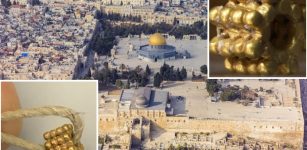 Rare 3,000-Year-Old Gold Bead Found On Temple Mount By Young Boy
Archaeology | Nov 30, 2020
Rare 3,000-Year-Old Gold Bead Found On Temple Mount By Young Boy
Archaeology | Nov 30, 2020 -
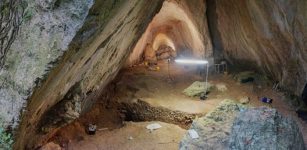 10,000-Year-Old Adorned Female Infant Burial Discovered In European Cave
Archaeology | Dec 14, 2021
10,000-Year-Old Adorned Female Infant Burial Discovered In European Cave
Archaeology | Dec 14, 2021 -
 Aqueducts Are Among Most Exceptional Achievements Of Ancient Roman Engineers
Ancient Technology | Apr 10, 2019
Aqueducts Are Among Most Exceptional Achievements Of Ancient Roman Engineers
Ancient Technology | Apr 10, 2019 -
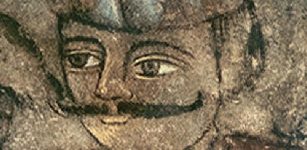 On This Day In History: Vlad II Known As Vlad Dracul (‘Vlad The Dragon’) Was Born – On August 30, 1400
News | Aug 30, 2016
On This Day In History: Vlad II Known As Vlad Dracul (‘Vlad The Dragon’) Was Born – On August 30, 1400
News | Aug 30, 2016

